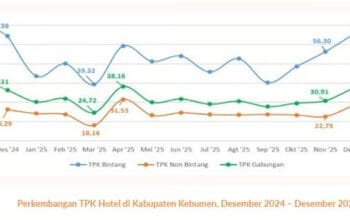In the fast-paced world of technology, staying ahead of the curve is imperative for businesses looking to thrive. Technological trends are not just fleeting fads; they are the driving force behind innovation, shaping industries and redefining the way we live and work. In this comprehensive guide, we delve into the latest technological trends that are reshaping the landscape of various sectors.
Artificial Intelligence (AI): Transforming Business Operations
Artificial Intelligence (AI) has transcended its status as a buzzword to become a cornerstone of modern business operations. From predictive analytics to personalized customer experiences, AI is revolutionizing how organizations operate. Machine learning algorithms analyze vast amounts of data to extract actionable insights, enabling businesses to make informed decisions with unprecedented accuracy and efficiency.
In the realm of healthcare, AI-powered diagnostic tools are enhancing medical diagnosis and treatment planning, leading to better patient outcomes. In manufacturing, AI-driven predictive maintenance is optimizing equipment performance, reducing downtime, and cutting operational costs. As AI continues to evolve, its applications across industries are limitless, promising to unlock new levels of productivity and innovation.
Internet of Things (IoT): Connecting the World
The Internet of Things (IoT) has ushered in an era of connectivity, where everyday objects are equipped with sensors and connected to the internet, enabling seamless communication and data exchange. From smart homes to smart cities, IoT is revolutionizing the way we interact with our environment.
In agriculture, IoT devices monitor soil moisture levels, temperature, and crop health, empowering farmers to make data-driven decisions and optimize crop yields. In transportation, IoT-enabled vehicles communicate with traffic signals and other cars to reduce congestion and improve road safety. The potential of IoT to transform industries is immense, offering unprecedented levels of efficiency, convenience, and sustainability.
Blockchain Technology: Securing Transactions
Blockchain technology has emerged as a game-changer in the realm of digital transactions, offering a secure and transparent way to record and verify transactions without the need for intermediaries. By decentralizing data storage and utilizing cryptographic techniques, blockchain ensures the integrity and immutability of transaction records, making it ideal for applications ranging from finance to supply chain management.
In finance, blockchain is revolutionizing payment processing, enabling fast and secure cross-border transactions without the need for traditional banking intermediaries. In supply chain management, blockchain enables end-to-end traceability, allowing businesses to track the journey of products from manufacturer to consumer, enhancing transparency and reducing the risk of fraud. As blockchain continues to evolve, its potential to disrupt traditional industries is limitless, promising greater efficiency, security, and trust in digital transactions.
Augmented Reality (AR) and Virtual Reality (VR): Enhancing Experiences
Augmented Reality (AR) and Virtual Reality (VR) are blurring the lines between the physical and digital worlds, offering immersive experiences that transform how we interact with content and information. From gaming and entertainment to education and training, AR and VR are reshaping the way we experience the world around us.
In retail, AR technology allows customers to visualize products in their own environment before making a purchase, enhancing the shopping experience and reducing the likelihood of returns. In healthcare, VR simulations are used to train medical professionals and provide immersive therapy experiences for patients, offering new avenues for learning and treatment. As AR and VR technologies become more accessible and affordable, their applications across industries are poised to revolutionize the way we work, learn, and play.
Conclusion
In conclusion, technological trends are driving unprecedented levels of innovation and transformation across industries. From AI and IoT to blockchain and AR/VR, these advancements are reshaping the way we live, work, and interact with the world around us. Businesses that embrace these technologies and adapt to the changing landscape will position themselves for success in the digital age.













